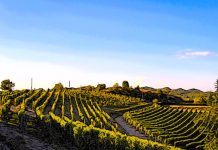Reg. EU 2018/848-in introducing a comprehensive reform of the organic production regime (1,2)-also updated the labeling rules for organic food products.
In Italy, the MiPAAF has in turn intervened through DM 20.5.22 no. 229771, which replaces previous decrees on labeling and other obligations of operators in the organic supply chain. (3)
1) Organic, zero misunderstanding on the label.
Organic is the only agricultural and food production system subject to a uniform and specific discipline that has always been rooted in a European regulation. That is, on an identical set of rules identically applied in all member states, the autonomy of which is essentially limited to the scope of official controls-additional to those provided for the generality of operators in the agri-food supply chains (4)-and sanctions.
l terms ”biologico‘ – in Italian or other languages, e.g. ‘organic‘, ‘organic‘ – and any other even abbreviated expression (e.g. ‘bio‘, ‘eco‘) that may inspire the consumer in this sense are exclusively reserved for products made in full compliance with the rules on organic production and certified as such. Labeling and advertising as organic products that are not found to be such is therefore subject to administrative sanction, unless the act constitutes a crime. (5)
2) Indication of origin, short supply chain
The origin and/or provenance of agricultural raw materials of the generality of food products is only guaranteed on the label of organic supply chains, as seen above. (6)
Reg. EU 2018/848 insists on the goal of ‘promoting short supply chains and local production in the various areas of the Union‘ (Article 4.1.f. See also footnote 7).
2.1) Organic logo and origin, generic news
The EU organic production logo must come with, in the same visual field, a generic indication of where the agricultural raw materials of which the product is composed were grown:
(a) ‘EU agriculture (or aquaculture),’ when the agricultural raw material was grown in the Union,
(b) ‘Non-EU agriculture,’ when the agricultural raw material was grown innon-EU countries,
(c) ‘EU/non-EU agriculture,’ when the agricultural raw materials were grown both in the EU and in one or morenon-EUcountries.
2.2) Origin, geographical detail
Organic operators may, however, replace the very generic indication of origin and/or provenance of agricultural raw materials (‘EU/non-EU‘) with more detailed geographical references. Not only the
– Country of cultivation of agricultural raw materials, as already provided in reg. EC 834/07, but also
– Country and Region, ‘whether all the agricultural raw materials of which the product is composed were grown in that country and, where applicable, in that region‘ (EU Reg. 2018/848, Art. 32.2).
3) Operator code
MiPAAF Decree 20.5.22 no. 229771 then finally brought national secondary regulations in line with EU rules, removing the requirement to label the operator code.
This code was indeed meaningless to consumers and added nothing to the information in the records already available to the control authorities (ICQRF).
4) Organic, in one label the value of all.
A simple label-proposed below as an example-expresses the value of an intact and local supply chain that is fair and sustainable for people’s health and ecosystems. A shared value, everyone’s value, incomparable to the deceptive evocations of ‘sustainability‘ (8) and ‘naturalness‘ that crowd supermarket shelves.
Example of a jam label
Legend:
(1) Product name
(2) List of ingredients
(3) Quantity
(4) Minimum storage period
(5) Business name of the manufacturer or distributor
(6) Lot
(7) Methods of use and storage,
(8) Fruit and sugar content.
(9) Supplementing the designation with the name of the fruit
(10) Environmental labeling packaging
(11) nutrition declaration
(12) production method, associated with the name and ingredients
(13) EU organic logo with Control Body code and origin of materials in the same field of view
(14) Logo of the Inspection Body (optional).
Dario Dongo, Donato Ferrucci
Notes
(1) Dario Dongo. Organic, reg. EU 2018/848. GIFT (Great Italian Food Trade). 22.6.18,
(2) Donato Ferrucci, Dario Dongo. Production and labeling of organic products, starting reg. EU 2018/848. ABC. GIFT (Great Italian Food Trade). 2.2.22,
(3) MiPAAF, DM 20.5.22 no. 229771. Decree laying down provisions for the implementation of Regulation (EU) 2018/848 (…) in relation to the obligations of operators and groups of operators for production standards and repealing Ministerial Decrees 18.7.18 no. 6793, 30.7.10 n. 11954 and 8.5.18 no. 34011. https://bit.ly/3yuf2nV
(4) Donato Ferrucci, Dario Dongo. Organic controls in Italy, the ABCs and data. GIFT (Great Italian Food Trade). 7.3.19,
(5) See d.lgs. 20/2018. Provisions for harmonization and rationalization of regulations on controls in organic agricultural and agri-food production. Text updated as of 6/20/22 on Normattiva, https://bit.ly/3ytOH9z. See also Penal Code, Article 515(fraud in trade)
(6) Dario Dongo. Origin ingredients, guarantees only on organic. Revolt. GIFT (Great Italian Food Trade). 17.6.18,
(7) Dario Dongo.
Short supply chain, concepts and values.
. GIFT (Great Italian Food Trade). 27.9.19,
(8) Dario Dongo, Donato Ferrucci. Sustainable agriculture, the ABCs. GIFT (Great Italian Food Trade). 16.2.19
(9) Dario Dongo, Marta Strinati. Claim ‘natural’ on label. Petition against deception. GIFT (Great Italian Food Trade). 26.11.20.











